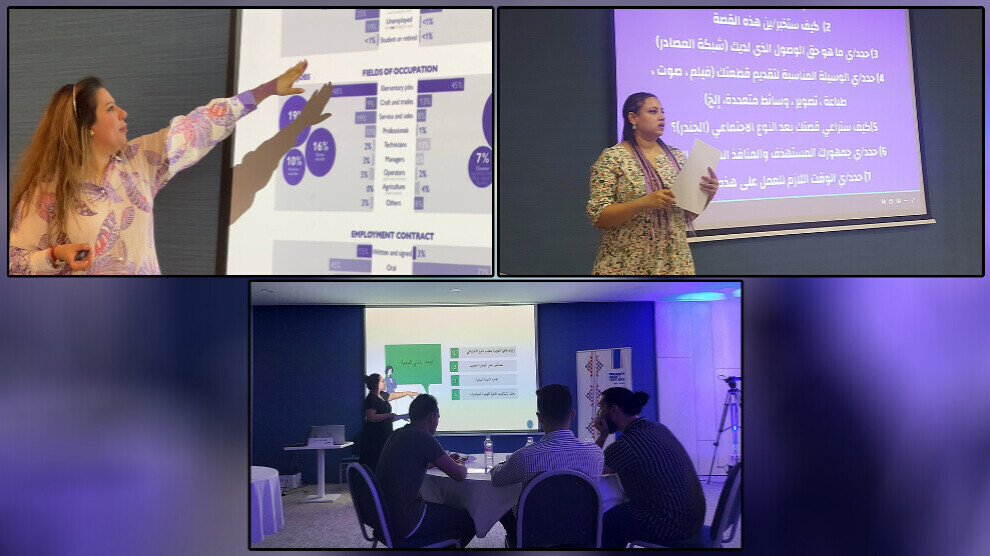Workshop in Libya on migration issues from 'a gender perspective'
Nuasi for Gender Equality held a workshop for Libyan journalists to shed light on migration issues from a gender perspective.

HINDIYA AL-ASHEPY
Benghazi - On June 26, the Nuasi for Gender Equality, a non-governmental organization in Libya, held a workshop for Libyan journalists in cooperation with the Friedrich-Ebert-Stiftung (FES) to shed light on migration issues from a gender perspective.
Since the beginning of 2022, at least 475 people, including children and women, have died attempting to cross the Central Mediterranean, according to the Missing Migrants project of the International Organization for Migration (IOM). In 2022, 3,424 adult male migrants and 122 minors were returned to Libya and 375 adult women and 47 female minors were returned to Libya, according to the IOM Maritime Update.
The role of women journalists
The workshop held with the motto, “Migrant Women in Libya and Fair Human Rights Media Coverage” focused on practical and theoretical training and topics, including international laws and charters regulating migration across countries, international legal protection mechanisms for migrants, in addition to gender, migration and the women's face of migration. The workshop also included practical exercises on the role of women's journalism on issues of migration and asylum, and storytelling from a gender perspective.
300 journalists participated in the workshop
Haneen Bouchoucha, president of the Nuasi for Gender Equality, said that “fair and safe migration” is a project that has several stages, including sessions via the Zoom platform targeting a group of activists, human rights defenders and those interested. “The workshop focused on the need to shed light on migration issues, particularly gender issues, to raise awareness and increase knowledge about this issue, in addition to strengthening the role of organizations in amending laws and decisions to follow up on the effects of migration and its repercussions on vulnerable groups, women and children. About 300 journalists participated in the workshop and about 18 journalists were selected to participate in the workshop, which was held in Hammamet, Tunisia."
